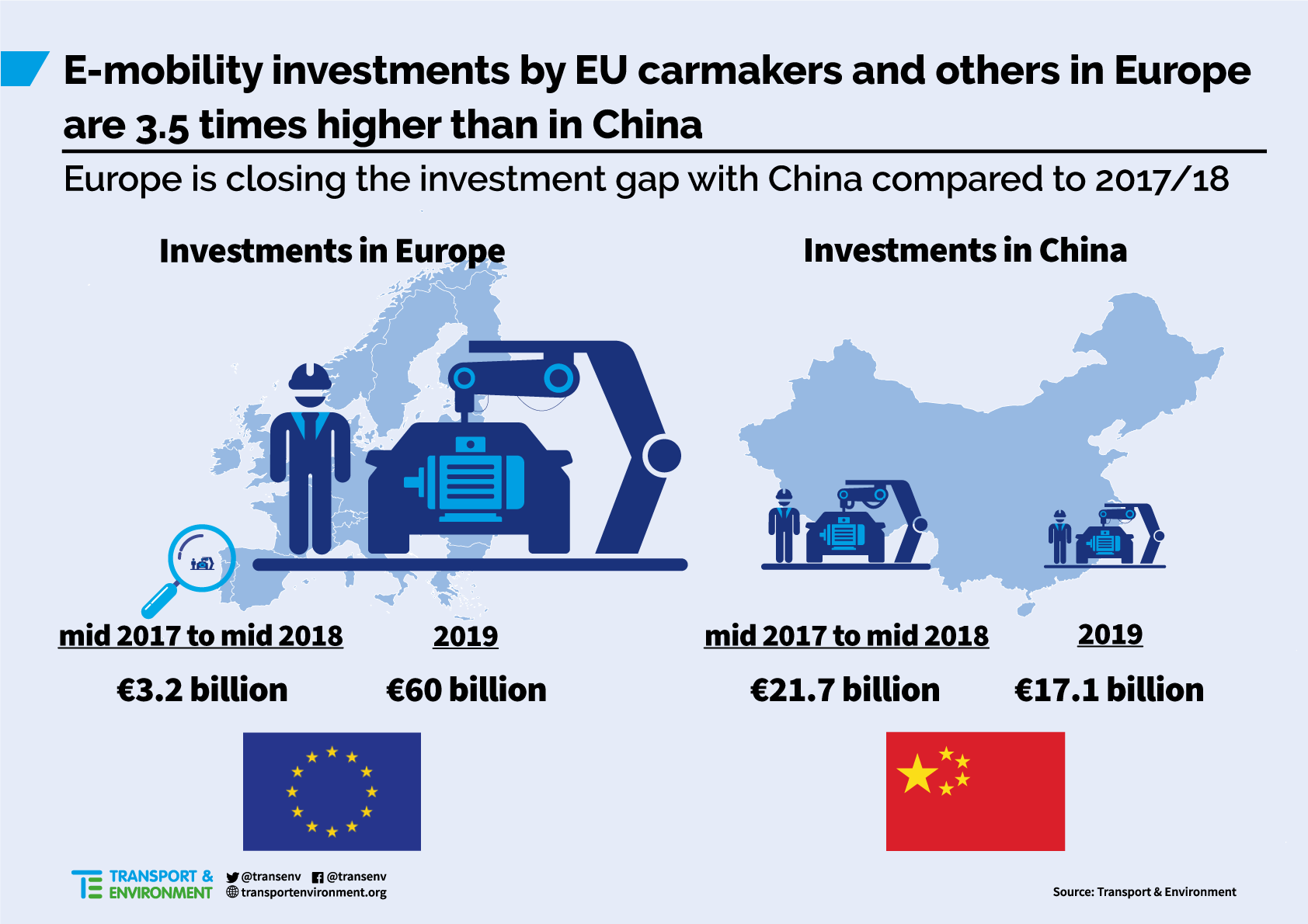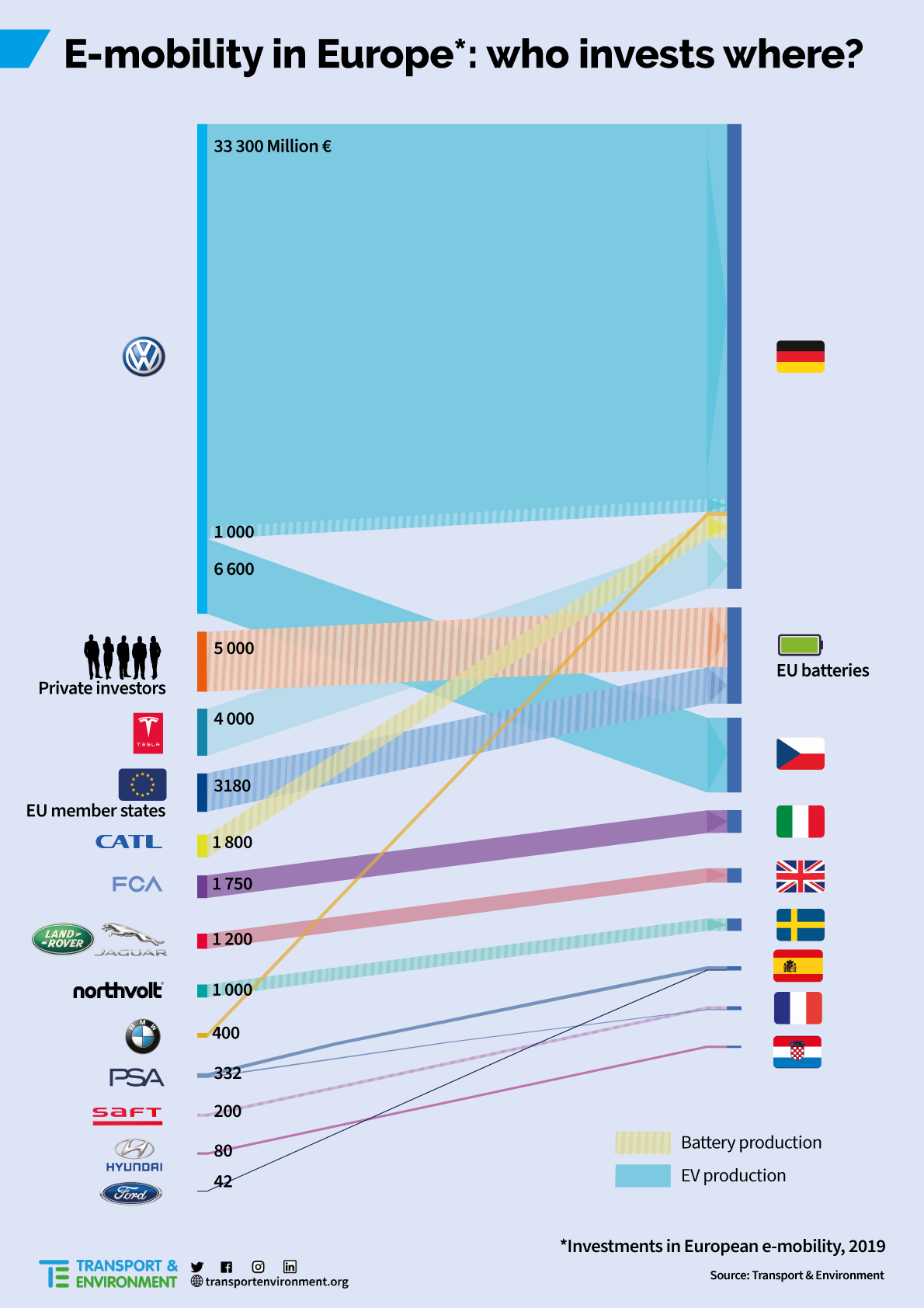
Interested in this kind of news?
Receive them directly in your inbox. Delivered once a week.
Germany got the biggest chunk, €40 billion, coming mainly from the Volkswagen Group, and Tesla which announced a plant in Berlin. The Czech Republic received €6.6 billion, also thanks to VW, which plans to produce 75 all-electric models worldwide by 2029. Italy secured €1.75 billion in EV investments last year from Fiat, while France, Sweden and the UK each got around €1 billion from car manufacturers. Spain received close to €300 million from Opel, and Croatia got €80 million from Hyundai and Kia.
Saul Lopez, e-mobility manager at T&E, said: “A few years ago Europe was nowhere in the race for EV supremacy. But EU CO2 targets concentrated carmakers and governments’ minds to invest €60 billion in electric cars and batteries and finally close the gap with China. Success in this market is now Europe’s industrial policy, and lawmakers should double-down with stimulus measures that will also drive a green recovery.”
The surge in EV investment resulted in a booming electric car market: EVs accounted for 7% of sales in the first quarter of 2020. As dealerships re-open, lawmakers should aim to regain that momentum with recovery measures such as loan guarantees and liquidity support for manufacturers prioritising EVs. If scrappage schemes and purchase incentives are introduced, these should be used to drive EV sales especially in urban, public and private fleets, which accounted for 57% of all cars sold last year. Public money should also help individuals and companies to install charging infrastructure.
For Europe to lead on e-mobility, EU lawmakers should also accelerate the transition to zero emission cars by reviewing upwards the bloc’s 2030 car CO2 targets next year. T&E said the EU should ensure only zero-emission models are allowed to be sold across Europe from 2035 at the latest.
Saul Lopez concluded: “Covid has wrought human tragedy and economic turmoil. But the EU and governments can use the recovery to emerge with a healthier, greener economy that reinforces its EV industrial strategy and creates thousands of jobs.”
Read more:
T&E’s report – Can electric cars beat the COVID crunch?



